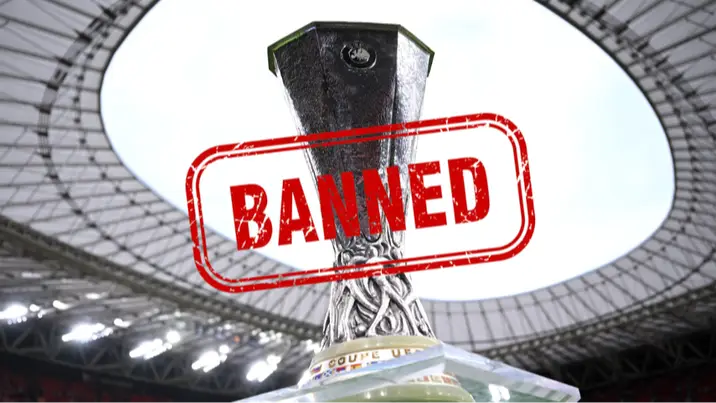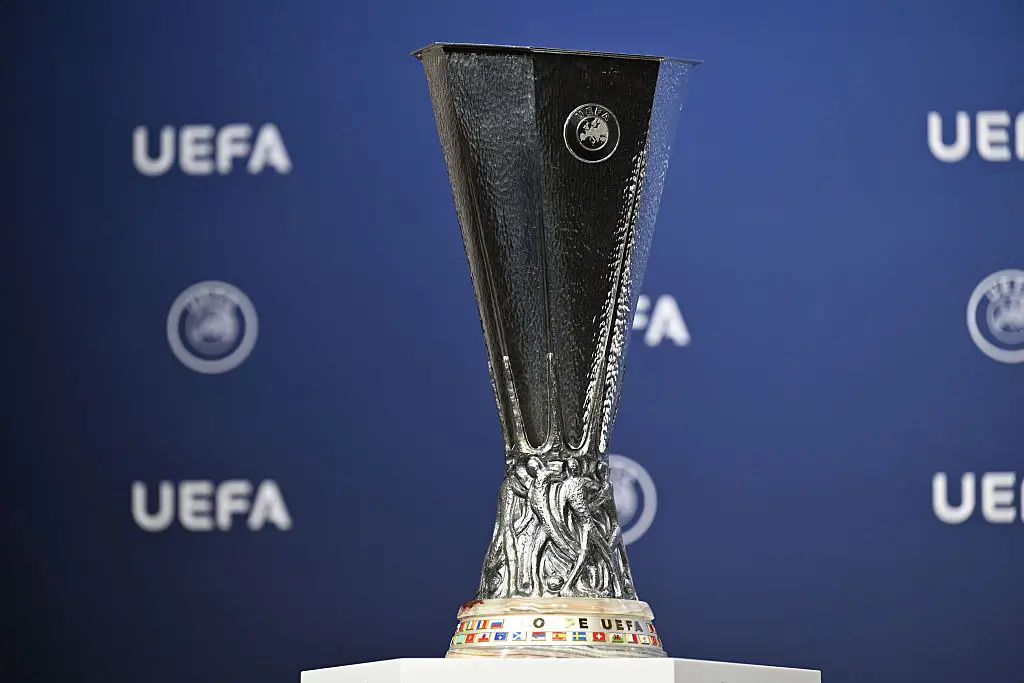
UEFA has banned/suspended 13 teams from competing in the Europa League in its history, and the reasons range from corruption to financial issues.
UEFA – European football’s governing body – oversees tournaments such as the Euros, Champions League, Europa League and Conference League.
But sometimes they have intervened and stopped some clubs from competing due to various rule breaches.
Four clubs have been banned from competing in the Champions League, which is widely seen as UEFA’s premier club competition, while two nations have been banned from competing at the European Championships since it began in 1960.
Advert

But what clubs have been made to sit out the Europa League, UEFA’s secondary club competition?
Besiktas were banned from the competition in June 2013 and served a one-year suspension for their involvement in domestic match-fixing, as reported by BBC Sport at the time.
Fellow Turkish side Fenerbahçe were also handed a two-year ban for their involvement in domestic match-fixing.
AC Milan were banned from the 2019/20 Europa League over breaches of Financial Fair Play rules.
"AC Milan is excluded from UEFA club competitions of the sporting season 2019-2020," said the Court of Arbitration for Sport (CAS) at the time.
AC Milan confirmed their "voluntary acceptance" of the ban, according to BBC Sport.

In 2012, Spanish outfit Malaga were given a two-year UEFA suspension and were banned from competing in the Europa League in 2013/14 because of unpaid bills.
The second year was waived on appeal, but CAS rejected their attempt to overturn the first.
Swiss side FC Sion were expelled from the 2011/12 Europa League for fielding ineligible players who were signed while the club was still under a transfer ban imposed by FIFA. This allowed Celtic to be reinstated into the competition in that season.
The CAS upheld the decision despite FC Sion’s appeal.
Serbia’s Partizan Belgrade were banned from the Champions League and Europa League for three seasons in 2017 due to unpaid debts. The ban was later overturned after they provided evidence that they had cleared unpaid debts.
Scotland’s Rangers were unable to compete in European competition in 2013/14 as the club’s “administrator… conceded that the club are unable to meet Uefa's 31 March accounts deadline”.
In 2013, Rapid Bucharest were also handed a one-year European club competition ban for the Europa League and Champions League.
They were also punished with a fine of 100,000 euros (£86,000).
Meanwhile, Steaua were also handed a suspended one-year ban with a five-year probationary period after allegations of match-fixing, as reported by Sofia Globe.
The Ukrainian side, Dnipro, received a one-year ban in 2016 over financial issues.
Azeri club Inter Baku and Romania's Târgu Mureș were also given one-season suspensions.
UEFA said the bans would be enforced in the next season the clubs qualified for the Champions League or Europa League for a three-season period, according to Reuters.
In 2018, Albanian side, Skënderbeu, were given a ten-year ban from all UEFA competitions, including the Europa League, as well as a €1 million fine, after CAS said its panel “found to its comfortable satisfaction that Skenderbeu was responsible for match-fixing activities” in both domestic and continental matches as per AP.
It must be noted that some of the bans mentioned cover both the Champions League and Europa League, depending on which competition each club would've competed in.
Topics: Europa League, UEFA, Football, AC Milan, Champions League
